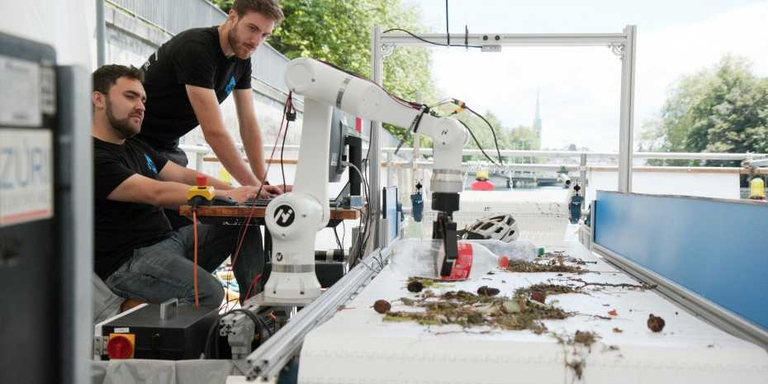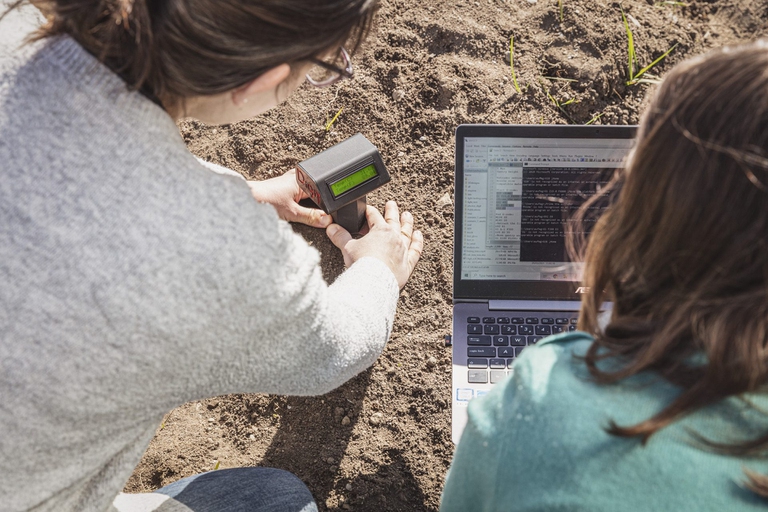https://www.lifegate.it/3-startup-svizzere
- |
THE'innovation which looks to a sustainable future often arises from the preparation and enthusiasm of young entrepreneurs who come together to give substance to brilliant ideas.That's what happened in Swiss, in particular in a structure that encourages and develops the creativity of those who attend one of the most prestigious universities in the country.Three startups they were born within the Student project house (Sph) of Zurich, a source of pride forEth, the city's Federal Polytechnic, whose full name is Eidgenössische Technische Hochschule.The Sph is a building open to all students who want to put their projects into practice:here there is space to study and discuss with colleagues, advice from teachers is offered for each subject, the tools necessary to create prototypes of one's ideas and much more are made available.All managed by the students themselves who in this way acquire autonomy and responsibility in a comfortable environment with all the comforts and conveniences (free coffee and drinks, zero-cost workstations, recreational spaces, opportunities for exchange).What do you need to access it?A good idea.
1 Autonomous river cleanup, for cleaned rivers
It is one of the ideas that strikes you when visiting the Student project house because it gives a concrete answer, even if still in progress, to a huge problem of our time:the'river pollution.The mission of the project Autonomous river cleanup (Arc) in fact it is to use technology, in particular robotics and automation, to maximize the impact of removing plastic from rivers.A large team made up of volunteers, bachelor's and master's thesis students supervised by expert doctoral students and professors from ETH Zurich has developed a system capable of significantly reducing plastic waste in river waters which, clearly, end up also pollute the seas in their final journey.The prototype of this ingenious machine - created with the support of important industrial companies - was put to the test in the waters of the Zurich river, the Limmat.
But how does it actually work?In practice, a "plastic collector" is mounted on a boat and is then assisted by a robotic arm which, thanks to artificial intelligence, after analyzing the waste, is able to distinguish it from other non-harmful residues found in the water, such as shrubs or other .

2 Digit soil, to analyze the soil in a few minutes
The second start-up is linked to the world ofagriculture.The two founders of Digit Soil in fact, they are developing a device that allows an analysis of the state of health of the soil in real time.“Our long-term goal is to develop a soil monitoring system that will help implement results-based agricultural policies.We also plan to make an internet platform available to farmers that will help them improve the health of their soils,” says Hélène Iven, co-founder of Digit Soil and associated researcher at ETH Zurich.The two creators of the project met inside the Student project house:Sonia Meller, a PhD student, presented her idea and Hélène Iven, then a Master's student, was so enthusiastic about the project that she decided to join her to optimize her strengths and skills.Their Digit soil has already received funding of 150,000 Swiss Francs and the spin-off has now started.
What does Digit soil consist of?It is a portable detector that analyzes the state of the ground in a few minutes (maximum 20):you take a sample, insert it into the machine - compact, light and easily transportable - and you also have the result on your mobile phone thanks to an app.The enzymes, which are essential for the health of the soil, are analyzed and, depending on the reports, the fertilizers to be used for the crops are also recommended.It all started from the need to remedy soil degradation:with this machine anyone can analyze and act consequently on their land and therefore on its health and productivity in a short time and with reduced expense.

3 Groam, the plant-based bioplastic for packaging
We always remain in the field of agriculture for Groam, conceived once again by two girls who thought of transforming agricultural production waste into a bioplastic that could be degraded even more easily than existing ones.It all started by examining the data on plastic production on the one hand, especially that used for packaging, and on the other, data relating to waste in the agricultural and food sectors.A surplus in both cases.Hence the project to create a bioplastic that could be used as packaging to reduce the production of plastic and at the same time reuse bio waste.
At first glance it looks like a sponge but it has great possibilities:now it is used mainly for hydroponic agriculture but they are also testing it for packaging and in the near future, improving it, also for the fashion and footwear industry.Three good examples of how valuable ideas can be transformed into successful projects and products if appropriately supported.

